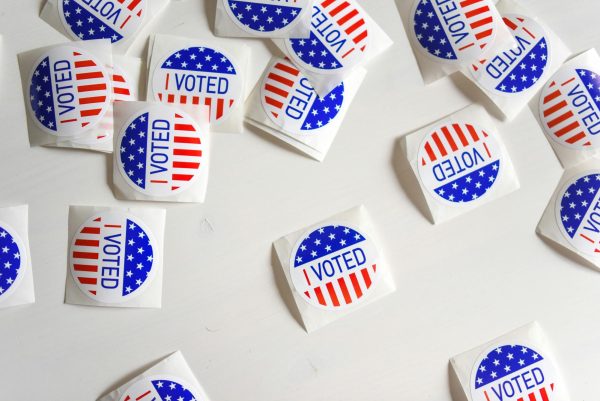
A recent study from Harvard Kennedy School indicates there is a major disconnect between current political affairs and younger voters. The most concerning result of this study is that an increased number of younger Republican, and especially independent, voters are less likely to vote in 2024, which can be attributed to the issue of candidate quality.
This phenomenon could be seen in the 2022 Pennsylvania Senate race between Democrat John Fetterman and opposing Republican Dr. Mehmet Oz. As Lieutenant Governor of Pennsylvania, Fetterman was weak on crime — advocating to release one-third of the state’s inmate population. On the other hand, Oz was an ally of former President Donald Trump, shared COVID-19 vaccine misinformation and sought to get an edge politically by cruelly attacking Fetterman’s health. The race concluded with Fetterman winning narrowly.
This race demonstrated the consequences of lack of choice. Reducing crime is a bipartisan issue, which is why Fetterman’s decision and rhetoric around releasing prisoners was seen as controversial. On the Republican end, Oz was a conspiracy theorist and Trump ally. The two choices for office were less than ideal, which is why the race was so narrow when it came to election night.
However, the other 2022 Pennsylvania statewide race — the gubernatorial election — was very different. The Democratic nominee was Josh Shapiro, a moderate candidate who most notably sought bipartisan solutions such as police reform to address police brutality during his previous stint as attorney general. The Republican nominee was Doug Mastriano, a Republican state Senator who participated in the treasonous event of Jan. 6, 2021. If elected Governor, he pledged that his top pick for the state’s election would require voters to recertify — a statement that was analyzed by election experts to be an attempt to “try to refuse to certify election results from Democratic-leaning counties.” As a result, Shapiro defeated Mastriano by a landslide.
The stark contrast between these two outcomes of the 2022 Pennsylvania statewide elections demonstrates that young voters are not satisfied with many of the candidates that the Democratic and Republican parties offer. The race wasn’t tight between Fetterman and Oz because they were both great candidates; it was because they were both viewed as inadequate choices. Therefore, both parties should nominate moderate candidates to increase civic engagement among youth.
The lack of bipartisan action regarding issues young voters care about can be seen in environmental policymaking. While an overwhelming number of young Republicans care about climate change and would like to combat it with green energy investments — a cost-effective practice as opposed to oil and gas industry regulations — current presidential GOP contender Trump opposes renewable energy, going so far as to attack Republicans for voting for President Joe Biden’s Bipartisan Infrastructure Law. On the other hand, the Biden administration hasn’t been practical in enforcing climate change policies.
For example, Biden implemented the Inflation Reduction Act, increasing our economic dependence on China, a national security threat. Considering the environmental components, the act proposed a transition to electric school buses and natural gas taxes, burdening taxpayers to compensate for the switch to electric vehicles. The technology behind these buses is also not up to standards for the timeline that the President proposed.
The Democratic and Republican parties can do this by nominating candidates other than Biden and Trump in this year’s presidential election. While both of these candidates have implemented good policies for the country, such as Biden’s CHIPS and Science Act and the protectionist trade policies by former president Trump, they are scandal-ridden candidates.
Trump is currently under investigation for harboring classified documents and causing the Jan. 6, 2021, attacks, while already found guilty of interfering with the 2020 Georgia election. In regards to Biden, it is not ethical that his son, Hunter Biden, was engaged in international business dealings with adversaries like China while his father was vice president. As a result, the United States House of Representatives opened an impeachment inquiry into Biden and his family’s business dealings. Additionally, both Biden and Trump have proven to be ineffective in solving many of the major problems the U.S. is currently facing, such as the migrant crisis.
However, on Dec. 19, 2023, Trump was deemed ineligible to appear on the 2024 Colorado ballots due to the Colorado Supreme Court’s ruling that the former President played a role in the Jan. 6, 2021 insurrection.
On the Democratic side of the 2024 primary election, President Biden was declared as the automatic victor with no challengers in North Carolina on Tuesday, Dec. 18, 2023. Young voters now have to contest with these two candidates, leaving behind a lot of uncertainty. In fact, 31% of young voters are undecided on who to vote for in the 2024 presidential election.
These recent developments cause uncertainty as to which candidates will be running in the upcoming presidential race. Day by day, the possibility of addressing the worries of youth voters seems more likely to be swept under the rug rather than addressed in the upcoming presidential election, risking the possibility of alienating this demographic in the near future.
If politicians in Washington, D.C. take this seriously, then moderate politicians on both sides are the key to ensuring a bipartisan political climate in the U.S. — an important part of tackling challenges that the country faces. Young voters resonate with this belief of candidate quality, attributed to their projected lack of engagement in future political elections. Thus, both the Democratic and Republican parties should focus on nominating moderate candidates to increase civic engagement among the youth and for the betterment of the nation.












